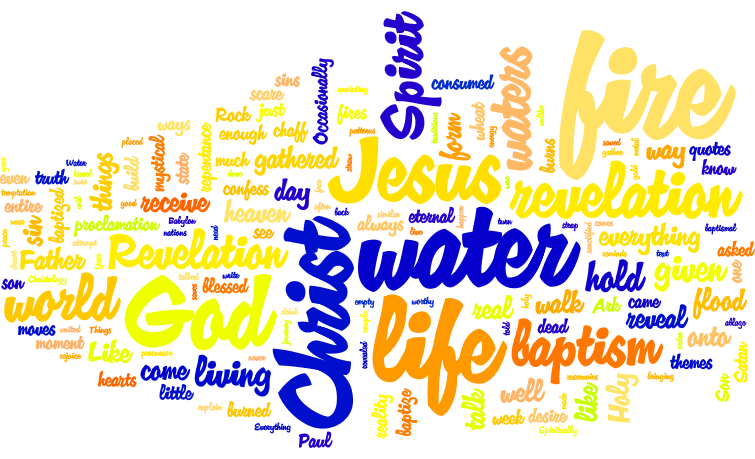When you pass through the waters, I will be with you; and through the rivers, they shall not overwhelm you; when you walk through fire you shall not be burned, and the flame shall not consume you. – Isaiah 43:2
We’ve probably all been watching the California fires. The reaction to these seems a bit subdued if anything. If I was taking a guess, it’s because they are somewhat unimaginable. Comprehending Pasadena burning or the Hollywood Hills is just not something that seemed possible. The search for Mrs. O’Leary’s cow will be impressive. (The apocryphal cause of the Great Chicago Fire.) So imagine turning to the assigned texts for Sunday and finding the above verse. The lectionary is way more topical than it has any right to be.
The Pacific Southwest District of the LCMS has eight (8) congregations in the area. As of Thursday morning all of them are still standing. Lots of evacuation. Some reports of members houses burned and further of students. Fairly universal power outages. But Trinty in Simi Valley’s report seems to summarize, “In ‘the eye of the storm’ with lots of wind but no smoke or fire.” Prayers are requested. But jumping immediately to a divine deliverance proclamation is too simple, even if that is what we would like. It would be nice if there was a divine hedge around us protecting us from the unimaginable. But that really isn’t what Isaiah is saying. What God is telling us here is better.
I’d suggest you read Isaiah 42 and 43 together if you have the time. Isaiah 42 is one of the “Servant Songs” which might be familiar. It starts off extolling the servant who “a bruised reed he will not break, and a faintly burning wick he will not quench. (Isaiah 42:3).” It proceeds through a call to “Sing to the LORD a new song, his praise from the ends of the earth (42:10).” But then it turns. Israel does not accept the Lord’s Servant. God does these things and does not forsake them, but “they say to metal images, ‘you are our gods’ (42:17).” Having turned from God they receive their due. “This is a people plundered and looted, they are all of them trapped in holes and hidden in prisons (42:22).” Isaiah is prophesying to those in exile attempting to understand their situation. Chapter 42 concludes that God has “set him (the servant) on fire all around, but he did not understand; it burned him up, but he did not take it to heart (42:25).”
The servant is both Israel as type and Christ as fulfillment. Israel failed, Christ is Israel reduced to one who succeeds. He takes our deserved baptism of fire. And that is where Chapter 43 begins. “Fear not, for I have redeemed you; I have called you by name, you are mine (43:1).” Being God’s people doesn’t exempt us from the floods and fires of this life. It doesn’t take us out of a fallen world groaning for the revelation. We still pass through the waters. The rivers still rise. Fires still blaze. But the promise is that “I will be with you (43:2).” The promise is that this life “will not consume you (43:2).” And the “you” is “everyone who is called by my name, whom I created for my glory, whom I formed and made (43:7).” We have a savior. The LORD our God, the Holy One of Israel. “Before me no god was formed, nor shall there be any after me. I, I am the LORD, and besides me there is no savior (43:10-11).”
The disasters of this life, far from being reasons to deny God, which is what the world wants us to do, are the opportunities to realize that God has drawn near to us. That in the midst of the fires, God is with us. And we shall not be consumed. That even if everything is lost, in my flesh I shall see God. The LORD makes a path in the sea. The waters of baptism now save you. The chariot and horse, the army and warrior, the wars and rumors of war that threaten to consume, “they lie down, they cannot rise, they are extinguished, quenched like a wick (Isaiah 43:17).” And this is done so that we might be his witnesses (43:10), “that they might declare my praise (43:21).”
Israel would not do this. “Yet you did not call upon me, O Jacob; but you have been weary of me, O Israel (43:22).” Yet God is faithful. “I will not remember your sins (43:25).” Which leaves it to us. Are we willing to witness. That even in the midst of disaster God is with us. Are we willing to praise? That Christ has saved us eternally. Fear not, for the LORD shall gather all his people, “bring my sons from afar, and my daughters from the ends of the earth (43:6).” For this we were made, to glorify God our savior.









